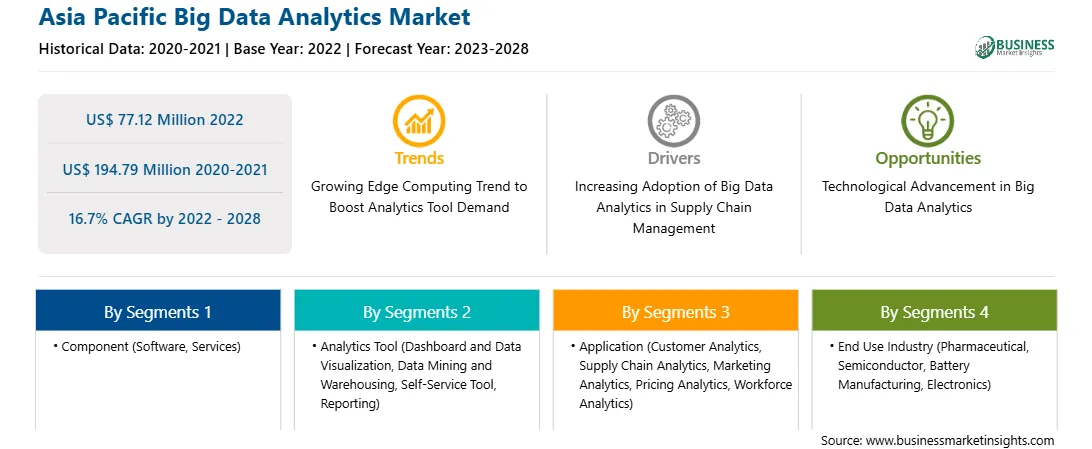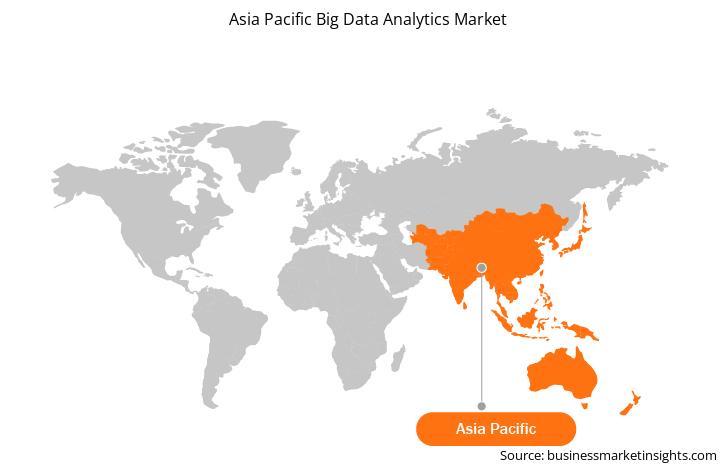Technologies incorporated with big data analytics are constantly evolving. To keep an advantage over competitors, firms adopt the appropriate trends. Several big data analytics trends have started in recent year. For instance, predictive analytics is a key strategy for businesses to get a competitive advantage and achieve their goals. The companies employ fundamental analytics tools to prepare massive data and determine the main cause of the problem. Predictive methods are used to analyze current data and historical occurrences to understand customers better and identify potential threats and such events for a company. Big data predictive analytics can forecast what will happen in the coming years. This method is effective at correcting studied data and predicting customer response. It enables businesses to outline the steps they need to take by anticipating a customer's next move before acting. Similarly, dark data is another innovation related to big data analytics. The data that a corporation does not employ in any analytical system is dark data. The information comes from various network operations that do not derive insights or make predictions. The organizations recognize that this will be the most asset. As data proliferates, the sector must remember that untapped data is a security risk. The rise in the amount of dark data is an ongoing trend. Further, data fabric is another new technic related to big data analytics. Data fabric is a network architecture and collection. This ensures consistency of functionality across various endpoints, such as on-premises and cloud. It simplifies and integrates data storage across cloud and on-premises settings to boost digital transformation. In a dispersed data environment, Data fabric provides data access and sharing. Further, it provides a unified data management architecture for non-separated storage. Thus, technological advancements in big data analytics are expected to drive the growth of the big data analytics market during the forecast period.
With the new features and technologies, vendors can attract new customers and expand their footprints in emerging markets. This factor is likely to drive the APAC big data analytics market in the coming years. The market is expected to grow at a good CAGR during the forecast period.
The APAC big data analytics market is segmented based on component, analytics tool, application, end use industry, and country. Based on component, the market is bifurcated into software and services. The software dominated the market in 2022 and services segment is expected to be fastest growing during forecast period. Based on analytics tool, the market is segmented into dashboard and data visualization, data mining and warehousing, self-service tool, reporting, and others. The dashboard and data visualization dominated the market in 2022 and reporting segment is expected to be fastest growing during forecast period. Based on application, the market is segmented into customer analytics, supply chain analytics, marketing analytics, pricing analytics, workforce analytics, and others. The customer analytics dominated the market in 2022 and pricing analytics segment is expected to be fastest growing during forecast period. Based on end use industry, the market is segmented into pharmaceutical, semiconductor, battery manufacturing, electronics, and others. The others dominated the market in 2022 and pharmaceutical segment is expected to be fastest growing during forecast period. Based on country, the APAC big data analytics market is segmented into the China, india, Japan, Australia, South Korea, and Rest of APAC .
Amazon Web Services, FICO, Hewlett Packard Enterprise Development LP (HPE), IBM Corporation, Microsoft Corporation, Oracle Corporation, SAP SE, SAS Institute Inc., Teradata, TIBCO Software Inc. are among the leading companies in the APAC big data analytics market.
Strategic insights for the Asia Pacific Big Data Analytics provides data-driven analysis of the industry landscape, including current trends, key players, and regional nuances. These insights offer actionable recommendations, enabling readers to differentiate themselves from competitors by identifying untapped segments or developing unique value propositions. Leveraging data analytics, these insights help industry players anticipate the market shifts, whether investors, manufacturers, or other stakeholders. A future-oriented perspective is essential, helping stakeholders anticipate market shifts and position themselves for long-term success in this dynamic region. Ultimately, effective strategic insights empower readers to make informed decisions that drive profitability and achieve their business objectives within the market.

| Report Attribute | Details |
|---|---|
| Market size in 2022 | US$ 77.12 Million |
| Market Size by 2028 | US$ 194.79 Million |
| Global CAGR (2022 - 2028) | 16.7% |
| Historical Data | 2020-2021 |
| Forecast period | 2023-2028 |
| Segments Covered |
By Component
|
| Regions and Countries Covered | Asia-Pacific
|
| Market leaders and key company profiles |
The geographic scope of the Asia Pacific Big Data Analytics refers to the specific areas in which a business operates and competes. Understanding local distinctions, such as diverse consumer preferences (e.g., demand for specific plug types or battery backup durations), varying economic conditions, and regulatory environments, is crucial for tailoring strategies to specific markets. Businesses can expand their reach by identifying underserved areas or adapting their offerings to meet local demands. A clear market focus allows for more effective resource allocation, targeted marketing campaigns, and better positioning against local competitors, ultimately driving growth in those targeted areas.

1. Amazon Web Services
2. FICO
3. Hewlett Packard Enterprise Development LP (HPE)
4. IBM Corporation
5. Microsoft Corporation
6. Oracle Corporation
7. SAP SE
8. SAS Institute Inc.
9. Teradata
10. TIBCO Software Inc.
The Asia Pacific Big Data Analytics Market is valued at US$ 77.12 Million in 2022, it is projected to reach US$ 194.79 Million by 2028.
As per our report Asia Pacific Big Data Analytics Market, the market size is valued at US$ 77.12 Million in 2022, projecting it to reach US$ 194.79 Million by 2028. This translates to a CAGR of approximately 16.7% during the forecast period.
The Asia Pacific Big Data Analytics Market report typically cover these key segments-
The historic period, base year, and forecast period can vary slightly depending on the specific market research report. However, for the Asia Pacific Big Data Analytics Market report:
The Asia Pacific Big Data Analytics Market is populated by several key players, each contributing to its growth and innovation. Some of the major players include:
The Asia Pacific Big Data Analytics Market report is valuable for diverse stakeholders, including:
Essentially, anyone involved in or considering involvement in the Asia Pacific Big Data Analytics Market value chain can benefit from the information contained in a comprehensive market report.